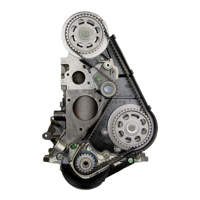What Makes a Car Engine Run Smoothly: Leading Tips for Optimal Care
The smooth procedure of a car engine is fundamental to both performance and long life, making ideal treatment a vital duty for lorry proprietors. What specific steps should you focus on to ensure your engine continues to be in peak condition?
Routine Oil Adjustments
Among one of the most crucial facets of car maintenance is ensuring your engine gets regular oil changes. Engine oil lubricates internal parts, lowers friction, and assists keep optimum operating temperatures. In time, oil weakens as a result of heat, contaminants, and the all-natural by-products of combustion, bring about lowered efficiency and possible engine damages.
The majority of manufacturers suggest changing the oil every 5,000 to 7,500 miles, yet this interval can differ based upon driving problems and oil type. As an example, artificial oils may allow for longer periods in between modifications. Normal oil modifications not only boost engine performance but additionally improve fuel efficiency, as tidy oil promotes smoother procedure.
Neglecting oil adjustments can lead to sludge accumulation, which impairs circulation and can bring about serious engine issues. It is crucial to inspect oil levels on a regular basis and keep an eye on for any unusual adjustments in shade or consistency, which could show contamination or deterioration.

Maintaining Coolant Degrees
Keeping correct coolant degrees is crucial for protecting against engine getting too hot and ensuring ideal efficiency. The coolant, normally a blend of water and antifreeze, flows via the engine, taking in warmth and stopping thermal tension. Inadequate coolant can result in enhanced engine temperatures, which might trigger serious damage or perhaps overall engine failure.
To maintain optimum coolant levels, frequently examine the coolant reservoir, generally found in the engine bay. Guarantee the coolant is loaded to the suggested mark, as indicated in your lorry's owner manual. It is suggested to inspect the levels at the very least when a month or before lengthy trips, especially throughout extreme weather.
If you discover that the coolant degree is constantly low, there may be a leakage in the cooling system, which should be addressed without delay to stop more issues. 2.2 ford ranger engine. Furthermore, flushing the coolant system every 2 to three years can aid get rid of any kind of collected debris and make certain effective heat exchange
Monitoring Air Filters

It is recommended to check the air filter every 12,000 to 15,000 miles, or much more frequently if driving in negative or messy problems. A basic aesthetic evaluation can commonly disclose whether the filter is filthy or harmed. It needs to be replaced immediately. click to read if the filter appears blemished or has noticeable dirt buildup.
Making use of a high-quality air filter made for your certain car model can further boost engine efficiency. Furthermore, some cars may gain from multiple-use filters that can be cleaned up and re-installed, giving a economical and environmentally pleasant choice.
Inspecting Spark Plugs
Glow plugs are important components check this of a car's ignition system, directly affecting engine performance and effectiveness. They produce the trigger that stirs up the air-fuel combination in the burning chamber, promoting the engine's power generation. Normal inspection of trigger plugs is crucial for maintaining ideal engine function and stopping prospective problems.
Dark soot or oil down payments can show incorrect combustion, while a white or raw appearance might suggest overheating. Both problems need immediate focus to stop further engine damages.
It's a good idea to examine trigger plugs every 30,000 miles, or as suggested in your vehicle's proprietor manual. In addition, think about replacing them according to the supplier's guidelines, as old or used spark plugs can lead to misfires, minimized fuel efficiency, and raised emissions.
Surveillance Tire Pressure
Ensuring appropriate tire pressure is an essential facet of car safety and efficiency. Under-inflated tires can lead to reduced fuel efficiency, boosted tire wear, and compromised handling. Alternatively, over-inflated tires can lower traction and raise the danger of blowouts. For that reason, regular tracking of tire stress is important for optimum vehicle procedure.
Tire stress should be checked at least when a month and previously lengthy journeys. Make use of a trustworthy tire stress scale to gauge the pressure when the tires are cold, ideally before the automobile has been driven for at the very least 3 hours. Describe the lorry's proprietor manual or the placard located on the chauffeur's side door jamb for the maker's advised stress levels.
It is essential to note that tire stress can change with modifications in temperature level; a decline of 10 ° F can cause a 1-2 psi reduction in my blog pressure. Additionally, visually inspect tires for any signs of wear or damage throughout your surveillance regimen. Preserving proper tire pressure not just boosts automobile security but also boosts fuel efficiency and prolongs tire life, ultimately adding to a smoother engine efficiency.
Verdict
In verdict, preserving a vehicle engine's smooth operation calls for diligent attention to a number of vital factors. Ultimately, a positive strategy to engine treatment is important for making sure integrity and capability over time.
One of the most crucial aspects of automobile upkeep is guaranteeing your engine obtains regular oil changes. Engine oil lubricates interior parts, reduces friction, and helps preserve ideal operating temperature levels. Normal oil adjustments not just improve engine performance but likewise improve gas performance, as tidy oil advertises smoother procedure.
Not enough coolant can lead to increased engine temperatures, which may cause severe damage or even overall engine failing.
